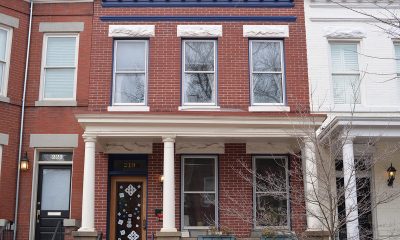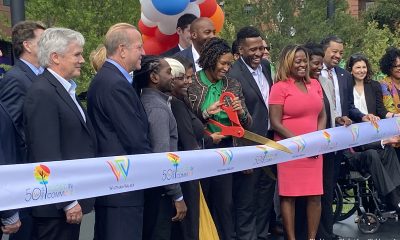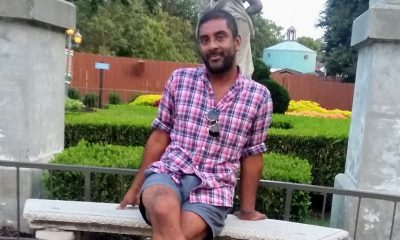Arts & Entertainment
Sue Ellen redux
‘Dallas’ actress on her former co-stars, life after Larry and the hit show’s gay following
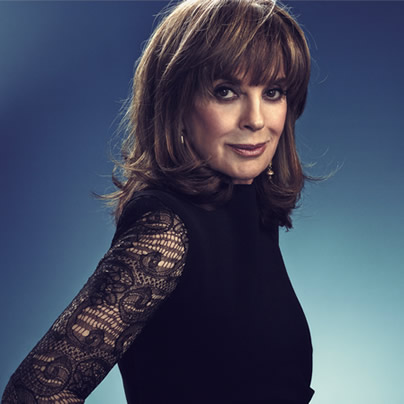
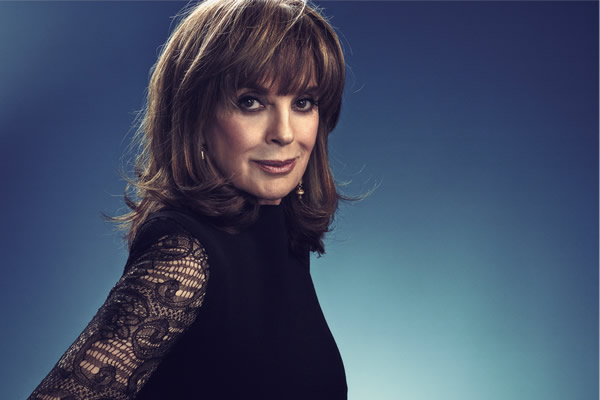
Linda Gray as Sue Ellen on ‘Dallas.’ Gray says it’s been a joy to return to the show 20 years later. (Photo courtesy TNT)
“Dallas,” the reboot of the classic 1978-1991 nighttime soap, returns for its third season Monday night on TNT and promises plenty of fresh backstabbing and intrigue.
John Ross (Josh Henderson) is working to live up to his father’s reputation, Christopher (Jesse Metcalfe) is reeling from a failed engagement and Elena (Jordana Brewster) is consumed with finding the justice that eluded her brother Drew (Kuno Becker) and mother Carmen (Marlene Forte).
It’s a pivotal turning point for the show — this will be its first full season without J.R. as actor Larry Hagman died in November 2012. He was in seven of season two’s 15 episodes and his character’s death was a major storyline last year.
Linda Gray, whose iconic character Sue Ellen has been willing to help her son any way she can on the new show, caught up with the Blade during a break in filming in Dallas two weeks ago, where it was snowing.
WASHINGTON BLADE: Snow is somewhat unusual but not unheard of for Dallas, right?
LINDA GRAY: I know. I’m just in heaven. It’s beautiful.
BLADE: You live in Los Angeles?
GRAY: Yes. I’m in Dallas six months, then L.A. six months. That’s a nice combination.
BLADE: I understand more of the show is filmed on location than was true for the old “Dallas,” right?
GRAY: Yes. We used to come here in the ‘80s for two months and work six days a week, then we went home and did eight-and-a-half months in L.A. So here we do 15 shows and we live here which is really kind of nice. At first we were like, “Oh, we have to move to Dallas?” but it’s quite amazing because then we get to show the audience all the greatness of Dallas. It’s changed so much since the ‘80s.
BLADE: How aware have you been of the show’s gay following? Do you sense it’s any different now than it was on the old show?
GRAY: I’m very aware it has a gay following and I’m beyond thrilled. I have so many, many, many friends who are gay and I adore them. There’s a JR’s and a Sue Ellen’s here, gay bars.
BLADE: We have a JR.’s in D.C., too.
GRAY: Oh, do you really? It’s so fantastic to have the support and we’ve always had it and … it’s been great. We love you right back. Dallas itself has a huge gay community here and they’re very supportive as well.
BLADE: What similarities or differences do you see now in how the show is rebounding dramatically from Larry’s passing versus how the original series dealt with the death of Jim Davis (Ewing family patriarch Jock)? I know it’s not exactly the same thing, but both were huge losses to the shows just a few seasons in.
GRAY: The entire team has changed, the writers, everything has changed and it’s an evolution that is — well, I step back and I look at this 20-year hiatus and it’s very bizarre to come back and do it again, but in such a good way. So now I think the approach is kind of like we’re outsiders looking in and seeing how the Ewings have evolved. And now without Larry, that threw everybody a curve and those wonderful writers — I always applaud the writers because without them and their great brains and their minds that kind of go off in wonderful directions, there would be no show. They had last season already approved by the networks and when Larry passed, they had to scramble and again, I applaud them because they did a magical shuffling around to kind of piece this together and still be an interesting, entertaining show without the key, which was huge — J.R. Ewing and Larry Hagman, I mean you know that was a huge void for me personally and I’m sure for everybody in the audience, it’s huge. So I look at it as an observer and say, “Wow, what a great job they’ve done.” They have to handle everything as it comes, as we all do in life. You don’t expect this to happen, but it did and now what are you going to do with it? When Jim Davis died, the producers were great. They moved his dressing room right on the soundstage because just like Larry, he wanted to die doing what he loved. They didn’t say, “No, you’re going into hospice or something,” they moved his dressing room right on the soundstage so we would do a scene and come in and hang out with Jim. When you’re doing a series, you’re so bonded as a family. You step in there and you’re supportive and you send them love. I would say “Dallas” has been blessed with a little bit of fairy dust that has been scattered on us from day one. The cast was wonderful, the writers were great, et cetera, and now it’s happening again and since I was one of the originals, it’s amazing to see how similar it is.
BLADE: You worked with Barbara Bel Geddes (Miss Ellie) for many years. After she left before the last season, she never appeared in any final episode, TV movies, cast reunions or anything. What would she think of this new series? (Bel Geddes died in 2005.)
GRAY: She was a savvy, bawdy broad, is what I called her, and I would call it to her face. We were so close. I’d call her Mama, on and off camera. She was this crusty New England broad. She was feisty and fabulous and such a huge classy addition to the Ewing family. I really was so shocked when I knew she was doing a series because I thought Barbara Bel Geddes, you know she worked with Tennessee Williams and Alfred Hitchcock. She was so classy and so when I first walked into the room, I’ll never forget it. I saw Major Nelson — Larry Hagman. I saw Patrick Duffy — “Man From Atlantis.” And then I saw Barbara Bel Geddes and I thought, “What’s wrong with this picture? Is this a sitcom? What is this show?” Internally I started laughing because I thought what is this? … But I just watched this magical thing happen and, you know, the Ewings became bigger than life. So for me it was great to work with her. She was astounding, she was quiet, she would make great funny little remarks during the rehearsals and then when you had a scene with her, man, you better be on your toes. You better bring your A game because she could bury you with a look. She was to me the same caliber as my two favorites — Judi Dench and Maggie Smith. There was no nonsense with her. It was just, “I’m here to work, I know what I’m doing, I’m a professional, I’m Broadway trained, I’m theater trained, I’ve worked with the best so don’t mess around with me.”
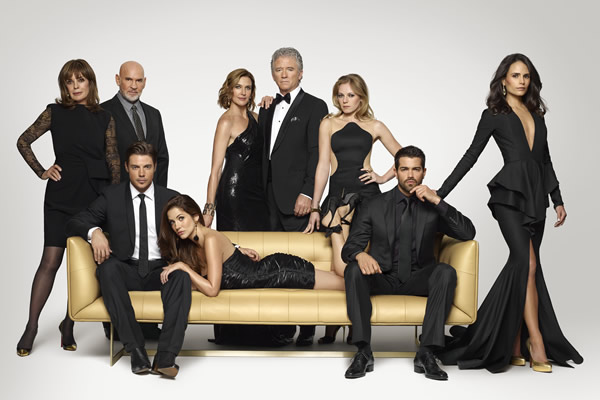
The cast of ‘Dallas.’ The reboot of the classic series returns Monday night. (Photo courtesy TNT)
BLADE: But what would her reaction be to this new series?
GRAY: I think she’d probably sit down with a glass of Scotch in her condominium and probably just laugh her ass off. She’d probably roll her eyes, going “How are we back again” and “Look at that younger generation.” But she would be a hoot. I think she would love the new show, love the kids, complain about everything — she loved to complain. She’d complain it was too hot, or, “What the hell are we doing, it’s snowing today,” or “What am I doing in Dallas,” blah blah blah blah blah. Yet the bottom line, she would love it.
BLADE: Victoria Principal has been a little different — she’s said she’s against reviving Pam in any kind of dramatic way, yet has joined up a few times in a non-dramatic capacity like the Vanity Fair photo (1995) and the 2004 reunion special. Over the years do you feel the rest of the cast has respected her wishes not to revive Pam or do you think there’s been some arm twisting to have her join in more often?
GRAY: I think we all respect her. I don’t think she wanted to come back and I don’t even know if the producers went after her or tried really pursuing her, I really don’t know. When you’re asked to come back, your gears are in different motion. You’re in forward motion. You’re thinking, “OK, gotta get to Dallas,” and you don’t really say, “Why isn’t so-and-so here?” For each person, it’s their choice and her choice was not to be in it so you respect everybody’s choice. We don’t see her very often. She was never kind of with us, you know, she was never — Larry, Patrick (Duffy) and I were very close and I was very close with Barbara and she just chose not to be as inclusive. I don’t mean that to — she just didn’t hang out with us.
BLADE: Any chance we might be seeing more of Lucy (Charlene Tilton)?
GRAY: Those are great questions but I don’t know the answers. The producers and writers, they write the scripts and if Lucy comes back, great, Ray Krebbs comes back, Steve (Kanaly) it’s always great to see him and it’s always fun to see them all. I do see Charlene in Los Angeles. She lives near my children. You know, it’s this great family, but since they’ve added all the young new people, it’s crowded. How many people can you bring back? It is fun for the audience when you see Charlene (Lucy), Steve (Ray Krebbs) and Kenny (Cliff Barnes), but it’s more a question for the producers.
BLADE: Larry was so anti-smoking yet Barbara smoked a lot. Did they ever clash over that on set?
GRAY: No, she would just tell him to get lost or, you know, just dismiss him. I think she smoked more in private. I never saw her smoke on the set.
BLADE: Now that it’s so many years later, do you feel the dream season was a good idea? People seem divided on whether it was clever or a jump-the-shark moment.
GRAY: Well, I don’t think people know all the dealings of how it really came about. Larry called Patrick and said, “I want you back.” He felt J.R. needed that brother, the good guy-bad guy kind of thing. I remember he called Patrick and Patrick knew when he got that phone call, what Larry was going to propose. He knew that intuitively. So he went over to his house in Malibu and they had a glass of Champagne and they may have gotten in the Jacuzzi, I don’t really know what happened there, but he talked Patrick into coming back so it was up to the producers to bring Patrick back and that was not an easy task to come up with. You know up front, no matter what they did, they would be criticized. … That was one of the things about “Dallas” that was exciting was that people would talk about it the next day. Did you like this? Look at Sue Ellen’s hair. Did you hate this? What about Bobby? What about J.R. drinking? Whatever. He’d call it water cooler chat. Whether you liked it or not, we knew it was going to cause chaos. So they had the idea for him to do the fake Irish Spring soap commercial where they edited out everything but him saying, “Good morning.” … A lot of people hated it and just stopped watching the show, they said it was ridiculous. A lot of people thought it was funny. A lot of people went, “Wow, that was a great dream sequence.” So no matter how you felt, good, bad or indifferent, they needed him back and they accomplished that.
BLADE: You look great but still look like yourself. What’s your skin care regimen?
GRAY: You’re sweet, thanks. When my peers no longer look like themselves, it scares me. There’s not a secret, I swear. I have a great skin care regimen. I never sleep with makeup on, I drink a lot of water. Hydration is huge. I eat great. I cook most of my own meals. A lot of green stuff — we’re from California, remember. And that’s it. You know, a good attitude goes a long way. And I exercise. I do all the things we’re supposed to do. Sometimes I don’t want to. I don’t want to get up early and go to the gym, but I do. I think complexion is more important than pulling and cutting your face. I’d rather have a good glowy complexion, so I use good skin care products and I use them twice a day. It’s like brushing your teeth. There’s no big secret.
BLADE: Could you ever imagine a gay wedding at Southfork?
GRAY: Sure! Why not?
Out & About
The Rare Book Fair is coming to D.C.
Over 35 antiquarian booksellers from across the country to attend
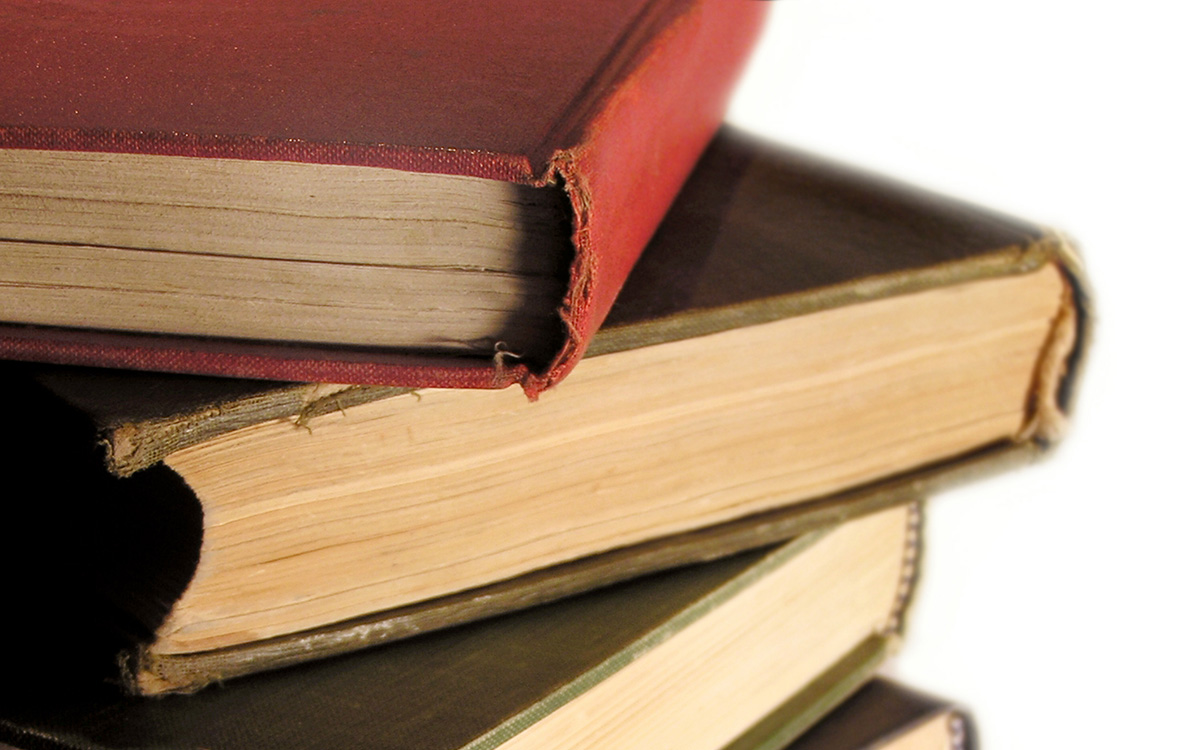
The Capital Rare Book Fair will bring more than 35 antiquarian booksellers from across the country to D.C. from Friday, May 3 to Sunday, May 5 at the historic University Club at 1135 16th St., N.W.
This year, the fair will take over two floors in the illustrious mansion on 16th Street and showcase thousands of beautiful, notable, and rare books, maps, and historic documents from around the globe. Exceptional examples that will be offered include leaf 27 of a 40-leaf xylographic Biblia pauperum, a picture Bible from 1465 for $85,000 from Bruce McKittrick Rare Books, among many other intriguing selections.
Tickets are $50 and more information is available on the event’s website.

Friday, April 19
Center Aging Friday Tea Time will be at 2 p.m. on Zoom. This is a social hour for older LGBTQ adults. Guests are encouraged to bring a beverage of choice. For more information, email [email protected].
Go Gay DC will host “Drag Pageant” at 8 p.m. at Freddie’s Beach Bar and Restaurant. Net proceeds from this event will benefit EQUALITY NoVa, the local nonprofit organization dedicated to advancing equality in Northern Virginia. Attendance is free and more details are available on Eventbrite.
Saturday, April 20
LGBTQ People of Color Support Group will be at 1 p.m. on Zoom. This peer support group is an outlet for LGBTQ People of Color to come together and talk about anything affecting them in a space that strives to be safe and judgment free. For more details, visit thedccenter.org/poc or facebook.com/centerpoc.
Go Gay DC will host “LGBTQ+ Brunch” at 11 a.m. at Freddie’s Beach Bar & Restaurant. This fun weekly event brings the DMV area LGBTQ community, including allies, together for delicious food and conversation. Attendance is free and more details are available on Eventbrite.
Sunday, April 21
Go Gay DC will host “LGBTQ+ Dinner” at 7 p.m. at Federico Ristorante Italiano. Attendance is free and more details are available on Eventbrite.
AfroCode DC will be at 4 p.m. at Decades DC. This event will be an experience of non-stop music, dancing, and good vibes and a crossover of genres and a fusion of cultures. Tickets cost $40 and can be purchased on Eventbrite.
Monday, April 22
Center Aging: Monday Coffee & Conversation will be at 10 a.m. on Zoom. This is a social hour for older LGBTQ adults. Guests are encouraged to bring a beverage of their choice. For more details, email [email protected].
Tuesday, April 23
Pride on the Patio Events will host “LGBTQ Social Mixer” at 5:30 p.m. at Showroom. Dress is casual, fancy, or comfortable. Guests are encouraged to bring their most authentic self to chat, laugh, and get a little crazy. Admission is free and more details are on Eventbrite.
Genderqueer DC will be at 7 p.m. on Zoom. This is a support group for people who identify outside of the gender binary. Whether you’re bigender, agender, genderfluid, or just know that you’re not 100% cis. For more details, visit genderqueerdc.org or Facebook.
Wednesday, April 24
Job Club will be at 6 p.m. on Zoom. This is a weekly job support program to help job entrants and seekers, including the long-term unemployed, improve self-confidence, motivation, resilience and productivity for effective job searches and networking — allowing participants to move away from being merely “applicants” toward being “candidates.” For more information, email [email protected] or visit [email protected].
Asexual and Aromantic Group will be at 7 p.m. on Zoom. This is a space where people who are questioning this aspect of their identity or those who identify as asexual and/or aromantic can come together, share stories and experiences, and discuss various topics. For more details, email [email protected].
Thursday, April 25
The DC Center’s Fresh Produce Program will be held all day at the DC Center for the LGBT Community. People will be informed on Wednesday at 5:00 pm if they are picked to receive a produce box. No proof of residency or income is required. For more information, email [email protected] or call 202-682-2245.
Virtual Yoga with Charles M. will be at 7 p.m. on Zoom. This is a free weekly class focusing on yoga, breath work, and meditation. For more details, visit the DC Center for the LGBT Community’s website.
Movies
After 25 years, a forgotten queer classic reemerges in 4K glory
Screwball rom-com ‘I Think I Do’ finds new appreciation

In 2024, with queer-themed entertainment available on demand via any number of streaming services, it’s sometimes easy to forget that such content was once very hard to find.
It wasn’t all that long ago, really. Even in the post-Stonewall ‘70s and ‘80s, movies or shows – especially those in the mainstream – that dared to feature queer characters, much less tell their stories, were branded from the outset as “controversial.” It has been a difficult, winding road to bring on-screen queer storytelling into the light of day – despite the outrage and protest from bigots that, depressingly, still continues to rear its ugly head against any effort to normalize queer existence in the wider culture.
There’s still a long way to go, of course, but it’s important to acknowledge how far we’ve come – and to recognize the efforts of those who have fought against the tide to pave the way. After all, progress doesn’t happen in a vacuum, and if not for the queer artists who have hustled to bring their projects to fruition over the years, we would still be getting queer-coded characters as comedy relief or tragic victims from an industry bent on protecting its bottom line by playing to the middle, instead of the (mostly) authentic queer-friendly narratives that grace our screens today.
The list of such queer storytellers includes names that have become familiar over the years, pioneers of the “Queer New Wave” of the ‘90s like Todd Haynes, Gus Van Sant, Gregg Araki, or Bruce LaBruce, whose work at various levels of the indie and “underground” queer cinema movement attracted enough attention – and, inevitably, notoriety – to make them known, at least by reputation, to most audiences within the community today.
But for every “Poison” or “The Living End” or “Hustler White,” there are dozens of other not-so-well-remembered queer films from the era; mostly screened at LGBTQ film festivals like LA’s Outfest or San Francisco’s Frameline, they might have experienced a flurry of interest and the occasional accolade, or even a brief commercial release on a handful of screens, before slipping away into fading memory. In the days before streaming, the options were limited for such titles; home video distribution was a costly proposition, especially when there was no guarantee of a built-in audience, so most of them disappeared into a kind of cinematic limbo – from which, thankfully, they are beginning to be rediscovered.
Consider, for instance, “I Think I Do,” the 1998 screwball romantic comedy by writer/director Brian Sloan that was screened last week – in a newly restored 4K print undertaken by Strand Releasing – in Brooklyn as the Closing Night Selection of NewFest’s “Queering the Canon” series. It’s a film that features the late trans actor and activist Alexis Arquette in a starring, pre-transition role, as well as now-mature gay heartthrob Tuc Watkins and out queer actor Guillermo Diaz in supporting turns, but for over two decades has been considered as little more than a footnote in the filmographies of these and the other performers in its ensemble cast. It deserves to be seen as much more than that, and thanks to a resurgence of interest in the queer cinema renaissance from younger film buffs in the community, it’s finally getting that chance.
Set among a circle of friends and classmates at Washington, D.C.’s George Washington University, it’s a comedic – yet heartfelt and nuanced – story of love left unrequited and unresolved between two roommates, openly gay Bob (Arquette) and seemingly straight Brendan (Christian Maelen), whose relationship in college comes to an ugly and humiliating end at a Valentine’s Day party before graduation. A few years later, the gang is reunited for the wedding of Carol (Luna Lauren Vélez) and Matt (Jamie Harrold), who have been a couple since the old days. Bob, now a TV writer engaged to a handsome soap opera star (Watkins), is the “maid” of honor, while old gal pals Beth (Maddie Corman) and Sarah (Marianne Hagan), show up to fill out the bridal party and pursue their own romantic interests. When another old friend, Eric (Diaz), shows up with Brendan unexpectedly in tow, it sparks a behind-the-scenes scenario for the events of the wedding, in which Bob is once again thrust into his old crush’s orbit and confronted with lingering feelings that might put his current romance into question – especially since the years between appear to have led Brendan to a new understanding about his own sexuality.
In many ways, it’s a film with the unmistakable stamp of its time and provenance, a low-budget affair shot at least partly under borderline “guerilla filmmaking” conditions and marked by a certain “collegiate” sensibility that results in more than a few instances of aggressively clever dialogue and a storytelling agenda that is perhaps a bit too heavily packed. Yet at the same time, these rough edges give it a raw, DIY quality that not only makes any perceived sloppiness forgivable, but provides a kind of “outsider” vibe that it wears like a badge of honor. Add to this a collection of likable performances – including Arquette, in a winning turn that gets us easily invested in the story, and Maelen, whose DeNiro-ish looks and barely concealed sensitivity make him swoon-worthy while cementing the palpable chemistry between them – and Sloan’s 25-year-old blend of classic Hollywood rom-com and raunchy ‘90s sex farce reveals itself to be a charming, wiser-than-expected piece of entertainment, with an admirable amount of compassion and empathy for even its most stereotypical characters – like Watkins’ soap star, a walking trope of vainglorious celebrity made more fully human than appearances would suggest by the actor’s honest, emotionally intelligent performance – that leaves no doubt its heart is in the right place.
Sloan, remarking about it today, confirms that his intention was always to make a movie that was more than just frothy fluff. “While the film seems like a glossy rom-com, I always intended an underlying message about the gay couple being seen as equals to the straight couple getting married,” he says. “ And the movie is also set in Washington to underline the point.”
He also feels a sense of gratitude for what he calls an “increased interest from millennials and Gen Z in these [classic queer indie] films, many of which they are surprised to hear about from that time, especially the comedies.” Indeed, it was a pair of screenings with Queer Cinema Archive that “garnered a lot of interest from their followers,” and “helped to convince my distributor to bring the film back” after being unavailable for almost 10 years.
Mostly, however, he says “I feel very lucky that I got to make this film at that time and be a part of that movement, which signaled a sea change in the way LGBTQ characters were portrayed on screen.”
Now, thanks to Strand’s new 4K restoration, which will be available for VOD streaming on Amazon and Apple starting April 19, his film is about to be accessible to perhaps a larger audience than ever before.
Hopefully, it will open the door for the reappearance of other iconic-but-obscure classics of its era and help make it possible for a whole new generation to discover them.
-

 District of Columbia2 days ago
District of Columbia2 days agoReenactment of first gay rights picket at White House draws interest of tourists
-

 District of Columbia2 days ago
District of Columbia2 days agoNew D.C. LGBTQ+ bar Crush set to open April 19
-

 Arizona2 days ago
Arizona2 days agoAriz. governor vetoes anti-transgender, Ten Commandments bill
-

 Africa4 days ago
Africa4 days agoUgandan activists appeal ruling that upheld Anti-Homosexuality Act

